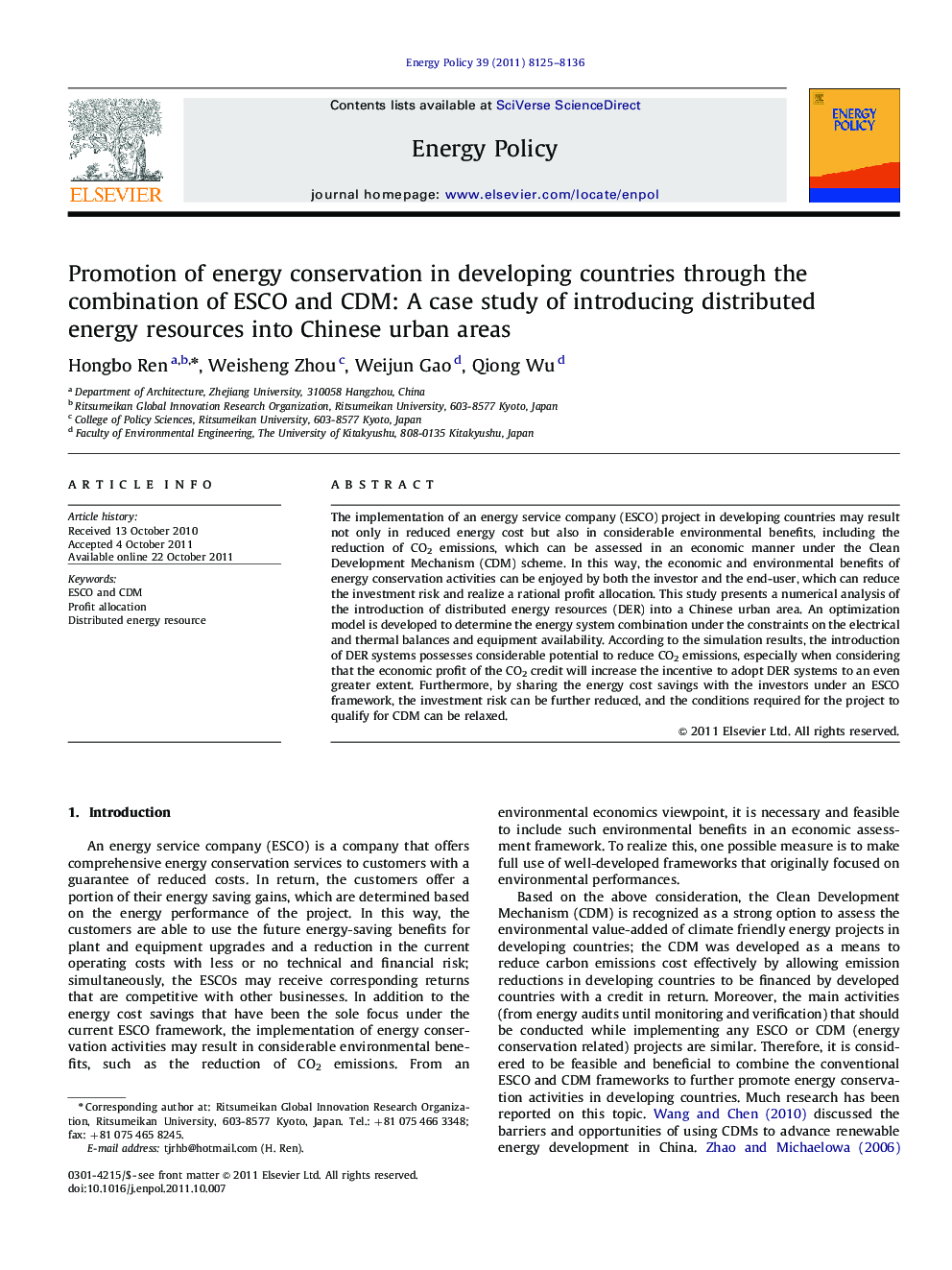| Article ID | Journal | Published Year | Pages | File Type |
|---|---|---|---|---|
| 993256 | Energy Policy | 2011 | 12 Pages |
The implementation of an energy service company (ESCO) project in developing countries may result not only in reduced energy cost but also in considerable environmental benefits, including the reduction of CO2 emissions, which can be assessed in an economic manner under the Clean Development Mechanism (CDM) scheme. In this way, the economic and environmental benefits of energy conservation activities can be enjoyed by both the investor and the end-user, which can reduce the investment risk and realize a rational profit allocation. This study presents a numerical analysis of the introduction of distributed energy resources (DER) into a Chinese urban area. An optimization model is developed to determine the energy system combination under the constraints on the electrical and thermal balances and equipment availability. According to the simulation results, the introduction of DER systems possesses considerable potential to reduce CO2 emissions, especially when considering that the economic profit of the CO2 credit will increase the incentive to adopt DER systems to an even greater extent. Furthermore, by sharing the energy cost savings with the investors under an ESCO framework, the investment risk can be further reduced, and the conditions required for the project to qualify for CDM can be relaxed.
Graphical abstractFigure optionsDownload full-size imageDownload as PowerPoint slideHighlights► An investor focused analytical model is developed to aid the investment of a DER system. ► The combination of ESCO and CDM enhances the incentive to introduce energy conservation measures. ► Electricity buy-back is effective in boosting the DER system adoption under the proposed framework. ► The increased energy cost savings allocated to the investor promotes the DER system adoption. ► The rational allocation of CER credits is of vital importance to the success of the project.
